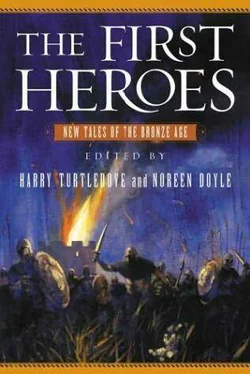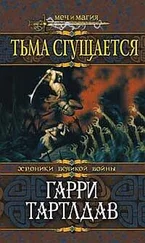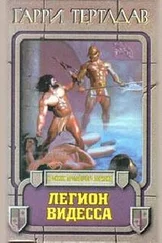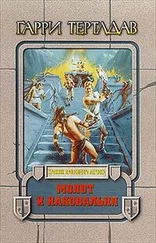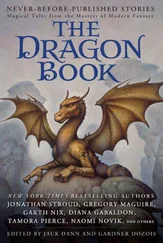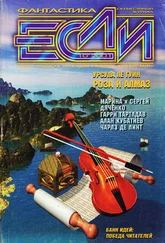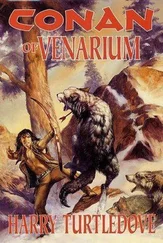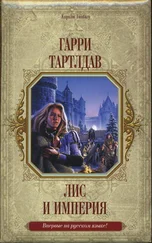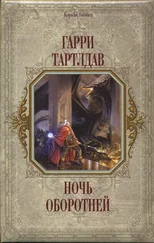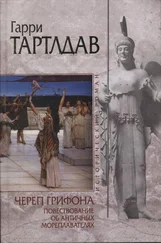Гарри Тертлдав - The First Heroes
Здесь есть возможность читать онлайн «Гарри Тертлдав - The First Heroes» весь текст электронной книги совершенно бесплатно (целиком полную версию без сокращений). В некоторых случаях можно слушать аудио, скачать через торрент в формате fb2 и присутствует краткое содержание. Жанр: Фантастика и фэнтези, на английском языке. Описание произведения, (предисловие) а так же отзывы посетителей доступны на портале библиотеки ЛибКат.
- Название:The First Heroes
- Автор:
- Жанр:
- Год:неизвестен
- ISBN:нет данных
- Рейтинг книги:3 / 5. Голосов: 1
-
Избранное:Добавить в избранное
- Отзывы:
-
Ваша оценка:
- 60
- 1
- 2
- 3
- 4
- 5
The First Heroes: краткое содержание, описание и аннотация
Предлагаем к чтению аннотацию, описание, краткое содержание или предисловие (зависит от того, что написал сам автор книги «The First Heroes»). Если вы не нашли необходимую информацию о книге — напишите в комментариях, мы постараемся отыскать её.
The First Heroes — читать онлайн бесплатно полную книгу (весь текст) целиком
Ниже представлен текст книги, разбитый по страницам. Система сохранения места последней прочитанной страницы, позволяет с удобством читать онлайн бесплатно книгу «The First Heroes», без необходимости каждый раз заново искать на чём Вы остановились. Поставьте закладку, и сможете в любой момент перейти на страницу, на которой закончили чтение.
Интервал:
Закладка:
Meanwhile the humbler folk have gathered outside. My steward steps forth to let them know it is their turn. By twos and threes, some shyly, some brashly, they come in, stand before me, utter a few awkward words, and set down whatever they are carrying. I say thanks, Daemagh gives each one her smile, and I beckon a servant to pick the thing up and another to fetch over whatever I deem is a fair exchange—for a ham, a useful bronze tool; for a sheepskin, a small brooch; for a straw basket full of hazelnuts, a comb— It goes on. Making so many quick judgments is not quite easy. But it is part of being a lord.
All the while, I am inwardly wondering what Ernu will bring, and why, and how I shall deal with it. If he gives me, say, a foxskin, a crock of honey would be a generous return, maybe overgenerous. But Cono-mar is with him—
How I wish I had kept better track of them. I did at first, inquiring of peat carters and suchlike men when they came by. Ernu had taken a strange and dangerous slave into his hut. If Conomar did anything untoward, I wanted to know, and set matters right, hunting him down if I must. But the word was that he had settled in, seemingly without the men of the bog having to break him with beatings, and the two of them worked together. There were rumors of witchcraft, and presently news of a second hut built nearby. Others shunned the place. However, Ernu had never been very neighborly, and after his voyage he kept more and more to himself. He raised his brood to do the same. When they did meet with other folk, they talked surlily and no more than was needful. Yet the bog dwellers suffered no worse ills—sickness, injury, and the like—than they had always done. Whatever wizardry Conomar tried, and Ernu tried to learn, was either harmless or lacking in force at this distance from its homeland. As for that new hut, it was known that Ernu had given him a daughter early on, and it was said he got the others too when they became fit, if they lived. Anyhow, Ernu never turned them over to anyone else. So maybe Conomar had cast a spell on him, at least.
I disliked hearing of such things, they posed no threat that I could see, and the gods knew how much else was pressing itself on my heed. After a while I stopped inquiring, then well-nigh forgot about it.
Now, all at once—
The last and lowliest of my people gives his gift, takes his gift, and leaves us. Ernu's bulk darkens the doorway. He shambles forward, bold as a bear. Conomar strides beside him. Both have gone gray and lost teeth. Well, so have I, and even my Daemagh. The bones stand sharp in Conomar's face above a thicket of beard. His eyes are the same wintry blue, defying me.
The hall goes silent. A breath of strangeness has blown through it, and everyone sits taut, watching. The pair stop before the high seat.
"Welcome again," I say lamely. "It's been a long time."
"Have you missed us, lord?" asks Conomar in our own language— mocking me, but I had better not respond. It would look as though I were afraid of him. Breath hisses between Daemagh's lips. Otherwise we keep still and wait. "Well, we took a long time making a thing for you," says Ernu. "The two of us. We wanted it should be great." He holds it to his breast, bundled in a mildewy hide. "That is . . . well thought of." Unless this be a curse. "Both of you?" I know no cause for Ernu to love me, but neither for him to hate me. Conomar, though—
The Boian takes the word. While his speech is rough, bog-dweller speech, it flows, and a Celtic lilt is in it. "Lord Havakh, once we fough t, and you fought bravely yourself. It's bad luck that caught me, and you did not do as ill by me as you might have. You passed me on to a man who's become my friend, and sure but the friend of my friend must be mine too."
Does he mean that? I wonder. Daemagh knows the story, of course. As often erstwhile, she asks the right question. "Has it not been a poor and lonely life for you?"
"That it has, my lady." His smile and his tone charm, but the eyes are unwavering. "Yet it could have been worse. When Ernu here and his house listened to my tales, poems, songs, I was no longer alone, not really. Homesick I have been, but not alone like a fish caught and thrown on the riverbank to wait for the beheading."
This has made it easier for them to keep their backs to the outside world, I understand. They've had a bard with them. And what else was he, is he? Oh, indeed I have underreckoned both the warrior and the bogman.
"And he listened to more than that," Conomar goes on. "We've come to work well together, the pair of us."
"I'm . . . glad to hear this," I say for lack of better.
Ernu sweeps a hand through the air. He fairly swells with his own importance—which is not just in his head, I know now. "At last, lord, we can bring you a worthy gift," he booms. "You remember that sword we—you took when we fared yonder?"
I can only nod. I gave it to the king when he came through on his yearly procession, and I believe he has kept it in his treasury. Since then, I also believe, some few iron knives and the like have trickled to the North, though I have not seen them.
"Well, lord," Ernu says, "this'n's not so good, not yet, but it's ours what we made for you, and there'll be better to come." He unrolls the bundle, tosses the skin to the floor, and reaches the thing up to me. It is an iron sword.
Crudely done, yes. Already, holding it, staring at it, while gasps and mutters go through the hall, I can see it's inferior to a good bronze blade, less sharp, dull-hued, the marks of the hammer everywhere on it—but it is long, a weapon not to thrust with but to hew with; it is iron.
"Where did you get the metal?" is all I can find to ask.
"From the bog, lord, the bog," Ernu tells me victoriously. "Conomar knew to poke down with a stick and find the lumps of, of, uh, ore. He knew to make a kiln, and heat the stuff and pound it and, uh, quench it— He didn't know the whole thing, lord. We worked it out together, year by year, the how of it. There's much yet to work out, yes, I won't say otherwise, but I will work it out, and already I can do tools and things worth swapping for. Already I'm a blacksmith."
And thereby a man of power, a man who may reforge our world.
I force the eerie thought aside. Is it not high time that we in the North began to gain these skills? First, however— "This is a great gift," I hear myself saying. "It's hard to know what I can give back."
"We've thought on that—" he begins.
"My freedom, my freedom," Conomar croons. "A boat that takes me to the mainland, a weapon, a little gold or amber so I can pay when I need to, and I'll make my way home. Is that too much, lord?"
"No. You shall have it," I must say. "And you, Ernu, shall have honor and a home here," he and his family and their uncouthness, well rewarded for each new discovery he makes, because he is now a blacksmith. I can only hope that soon there will be more.
Yes, they thought far ahead, these two.
I should be glad. Why do I find vengeful joy in Conomar's eyes? He is a poet, it seems, and poets are seers. What foreknowledge may he have?
I woke instantly, but lay for minutes bewildered. So much, so much— Rennie sat by the bed. The sight of him and of the objects around us, chairs, a desk, a computer, an Ansel Adams landscape framed and hung on the wall, a floor lamp lighted against the dusk gathering in the windows, those gave me back my reality. I was again the one I had always been. Jane and Myrtis were waiting for me at home.
It was not like rousing from a dream, though. I remembered what I had been as clearly as I remembered them, with none of the vagueness and illogic of dreams. I loved them, but I had lived longer with Daemagh and she had borne me more children.
No. She was Havakh's. I must be clear about that.
Читать дальшеИнтервал:
Закладка:
Похожие книги на «The First Heroes»
Представляем Вашему вниманию похожие книги на «The First Heroes» списком для выбора. Мы отобрали схожую по названию и смыслу литературу в надежде предоставить читателям больше вариантов отыскать новые, интересные, ещё непрочитанные произведения.
Обсуждение, отзывы о книге «The First Heroes» и просто собственные мнения читателей. Оставьте ваши комментарии, напишите, что Вы думаете о произведении, его смысле или главных героях. Укажите что конкретно понравилось, а что нет, и почему Вы так считаете.
